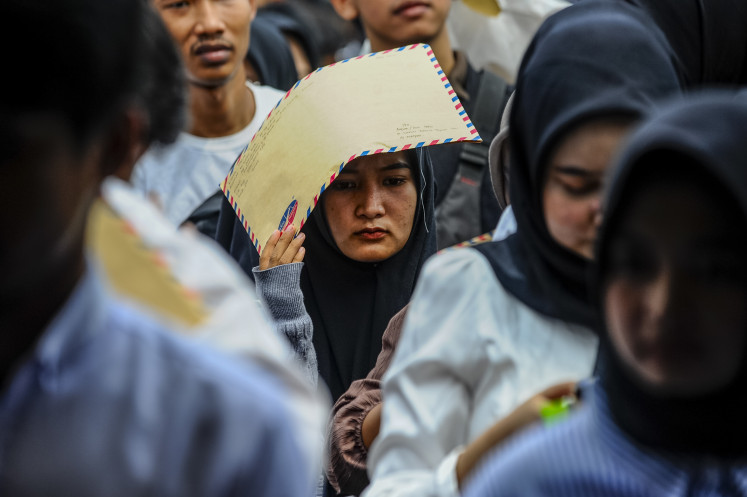Yogyakarta’s legendary noodles
Manual work: The factory uses a cow to pull a stone grinder to help the kneading process
Change text size
Gift Premium Articles
to Anyone

Manual work: The factory uses a cow to pull a stone grinder to help the kneading process.
There are various kinds of noodles, but if you want to try something different, check out these special noodle dishes in Yogyakarta.
These handmade noodles resemble rice noodles or vermicelli. Locals call them mie lethek (dirty noodles) as they have a rather murky color instead of the common white color of rice noodles — this is because they are made of tapioca flour.
I accidentally came across a noodle factory during a recent trip to Yogyakarta. It is located in kampung Bendo, Trimurti village, Srandakan district, Bantul regency, around 25 kilometers to the south of Yogyakarta. The green and serene kampung is located next to the Progo River. It has a man-made lake with a bridge connecting Bantul with Kulonprogo regency.
Built in 1944, the factory, which is currently run by a number of elderly people, still uses traditional methods: a heavy stone grinder pulled by a cow, a wood-fired oven and woven bamboo panels.
The noodle-making process starts with preparing the dough by mixing and soaking dried cassava roots and tapioca flour in a container. The dough is then steamed and later kneaded using the power of a cow. The dough is extruded using a machine, and after that, the noodles are placed under the sun for a day.
The factory can produce up to 10 tons of noodles per month, which are sold at Rp 70,000 (US$5) per 5-kilogram package. For something a bit different, try out this legendary dish during your visit to Yogyakarta.





— Photos by JP/R. Berto Wedhatama
— All photos are taken using Samsung A8+









